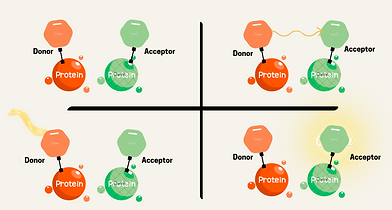

Medical Science Research
MEDSCI 9502 focuses on the theoretical framework of experimental design, particularly as it applies to neurodegenerative diseases like Amyotrophic Lateral Sclerosis (ALS). The course emphasizes the importance of the scientific method, experimental controls, replication, and integrating statistical analysis during the design phase. Students will explore the reproducibility crisis to understand the need for robust experimental practices and evaluate various experimental methodologies through ALS case studies. The course also covers practical applications, allowing students to assess and select experimental approaches for both basic and clinical research, while emphasizing statistical analysis and interpretation of findings in the context of ALS and other neurodegenerative diseases.
Meet the Prof
Course Objectives
01
Model Organism Presentation: Zebrafish
We tasked required to create a presentation focused on the zebrafish as a model organism. The presentation highlighted the unique advantages of zebrafish, such as their transparent embryos, rapid development, and genetic similarities to humans, which make them valuable for studying neurodegenerative diseases. We also discussed their practical applications in medical research, emphasizing their role in understanding disease mechanisms and testing therapeutic interventions.


02
Methodology Presentation: FRET
For this methodology presentation, I was assigned Fluorescence Resonance Energy Transfer (FRET). I focused on explaining both the underlying principles of FRET and its diverse applications in biomedical research. FRET involves energy transfer between two fluorophores that are in close proximity, making it an excellent tool for studying molecular interactions at the nanoscale level. I highlighted its use in investigating dynamic processes such as protein-protein interactions and conformational changes in real time. Additionally, I discussed its applications in neurodegenerative disease research, showing how FRET can help monitor changes in protein structure and aggregation, which are critical for understanding disease mechanisms and developing targeted therapies.
03
Protein Purification Flowchart
We were tasked with creating a flowchart to outline the steps involved in protein purification. The flowchart included key stages such as cell lysis, centrifugation, and chromatographic techniques like affinity and ion-exchange chromatography. It provided a clear visual representation of the purification workflow, detailing how each step contributes to isolating a specific protein of interest while maintaining its stability and activity.


Reflection
1
What I learned
I learned about the theoretical framework of experimental design, focusing on the application of the scientific method to neurodegenerative diseases. The course emphasized the importance of robust experimental controls, statistical analysis integration, and the critical role of reproducibility in advancing scientific research. I also explored different experimental approaches and evaluated their strengths and limitations in both basic and clinical research contexts.
2
Skills I developed
I developed skills in designing rigorous experiments, identifying appropriate controls, and integrating statistical analysis into research design. Additionally, I enhanced my ability to critically assess the reproducibility of experiments and to select suitable methodologies for answering specific research questions. I also gained experience in effectively communicating complex research concepts through presentations on model organisms and experimental methodologies.
3
How will I use it in the future
In the future, I will use these skills to design well-controlled experiments and critically evaluate research methodologies in a broader range of scientific projects. Understanding experimental design, statistical analysis integration, and the importance of reproducibility will be crucial as I pursue research opportunities in both academic and clinical settings. Additionally, my ability to communicate complex experimental concepts will be valuable when collaborating with interdisciplinary teams and presenting research findings to diverse audiences
